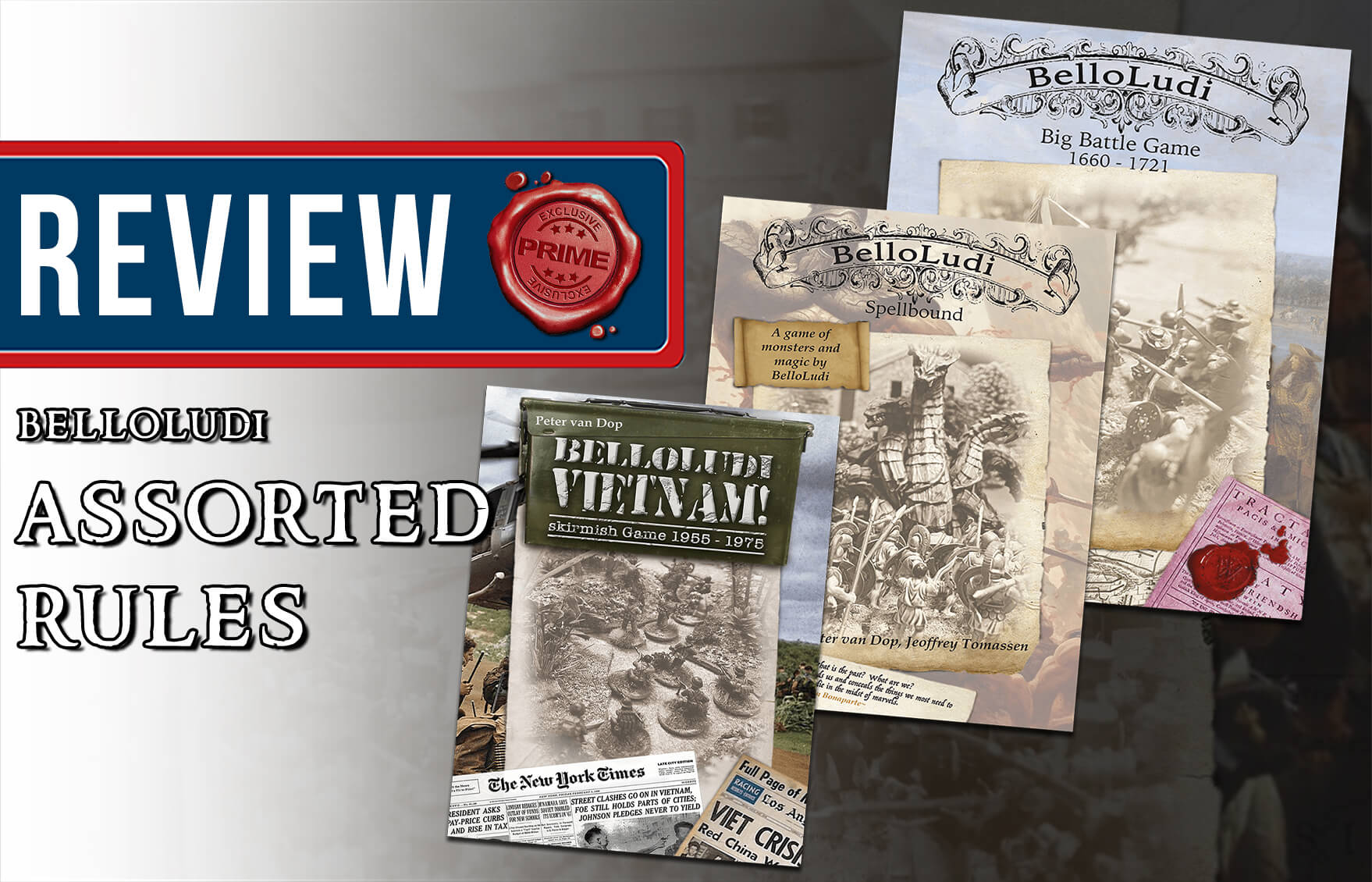BelloLudi - assorted rules review We review a collection of rulesets by BelloLudi that are designed for beginner wargamers and those who have a few feathers in their cap. BelloLudi, who hail from the Netherlands, produce a selection of rulesets designed for folks who have never encountered tabletop battles before, as much as they are made for (and by) seasoned wargamers. That broad demographic means that the rules, which cover a dizzying array of periods across multiple publications, are accessible and easy to learn, but do they live up to the company motto of ‘Easy Rules, Tough Choices!’? It would be impossible to cover all the books written by Peter van Dop and co, so we’ve picked out a trio that showcase the core systems (and their variations). Big Battle Game: 1660 - 1721 With armies organised into player-controlled brigades (games are intended for multiple players), made up of three cavalry squadrons or four foot-batallions, this ruleset certainly has the potential for very big battles. The basic rules take up just ten pages, and the other half of the book is devoted to extras, which means that the systems are extremely compact and concise. Despite their brevity, we can see potential for a good bit of tactical challenge here through the way command is handled. Commands can be given to an entire brigade or to individual squadrons, and require a roll on the game’s special Command Dice (seen above). On a 1, 2, or 3, your order is executed, with that many moves allowed (reforming takes 1 move). Should you roll a zero, the unit will not respond, but other unordered units in the brigade can still be given orders. The worst possibility is rolling a B; this is a Blunder, and stops orders being given to other unordered units as well as forcing the unit you rolled for to make another roll on the Blunders table. Blunders’ random results span retreating, moving left, right, straight ahead, or even charging. This is a simple way to bring friction to the game, and command is enhanced by a rule that allows troops within 12" of the enemy a free move, with no dice roll needed, which makes your army more efficient and predictable when they are close to the action. Decks of fate If you want to modify play further, you can add in the game’s card decks. These contain cards with various modifiers, used to boost your troops and enhance your command or negate your foes’ options. Shown below are examples from the Skirmish deck. These cards allow play to stay simple at its core while being modified by fun extras. New wargamers will probably see these as extra entertaining









